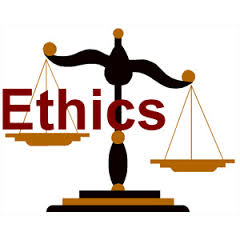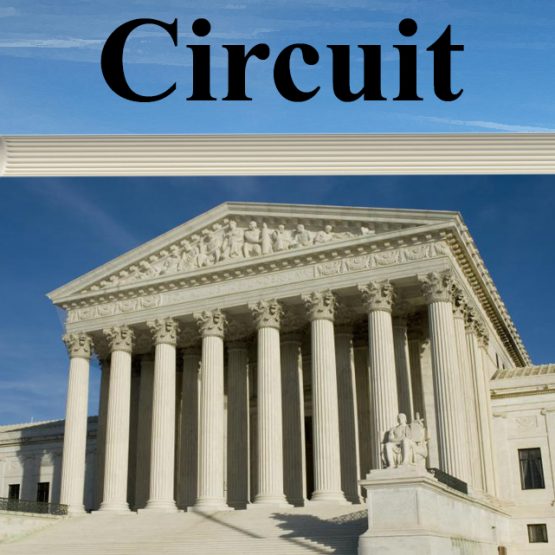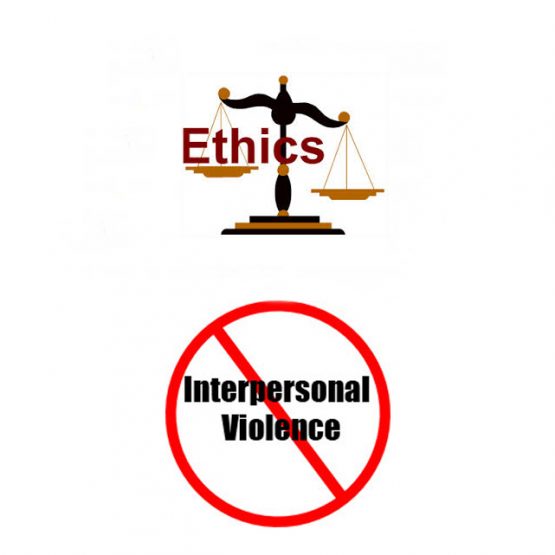Menu
Array
- 2023, August 4, DRC, Dispute Resolution Center Conference, Video Download Only
- 2022, August 11-13, DRC, Dispute Resolution Center Conference Recordings
- 2021, August 11-13, DRC, Dispute Resolution Center Conference - Video Download Only
- 2020, August 13-15, DRC, Dispute Resolution Center Conference Recordings - Video Download Only
- 2019, August 15-17, DRC, Dispute Resolution Center Conference Recordings
- 2018, August 9-11, DRC, Dispute Resolution Center Conference Recordings
- 2017, August 10-12, DRC, Dispute Resolution Center Conference Recordings
- 2016, August 11-13, DRC Dispute Resolution Center Conference Recordings
- 2015, July 30-August 1, DRC, Dispute Resolution Center Conference Recordings
- 2014, August 14-16, DRC, Dispute Resolution Center Conference Recordings
- 2013, August 9-10, DRC, Dispute Resolution Center Conference Recordings
- 2012, August 23-25, DRC, Dispute Resolution Center Conference Recordings
- 2011, August 25-27, DRC, Dispute Resolution Center Conference Recordings
- Catch All Category
Product Categories
Filter by price
A01 – ADR and Real Property Case Law Update: Mileposts for 2019 – 2020 – Michael Gelfand (1.2 CME Credits Ethics)
$5.00
Video recording: As the real estate market booms and busts, and communities increase and wan, this session will prepare mediators to be ready to mediate the disputes that will follow, including addressing new issues in condominium and homeowners’ association law mandatory ADR, and real estate in general. Explore recent decisions that impact your mediation and arbitration practices, including decisions
impacting ethical issues and in the area of real property law. Understand how the appellate courts reach their holdings.
A02 – Privadentiality: Making Sense of Florida Statutory Communication Protections – Gregory Firestone, Sharon Press (1.2 CME Credits Ethics)
$5.00
Video recording: There is a confusing array of communication protections across the spectrum of DR methods and no clear rationale for the varying communication protections.
This interactive workshop:
1. invites participants to consider differences between communication protections for mediation, collaborative law, and parenting coordination.
2. introduces a new term, privadentiality, to better describe DR communication protections
3. offers a framework for categorizing DR methods in order to develop more meaningful and understandable communication protections across the spectrum of DR.
A03 – Encountering Human Trafficking – MaryAnn Aiyer (1.2 CME Credits Interpersonal Violence)
$5.00
Video recording: Human trafficking is an ugly epidemic in our world, and it is impacting Central Florida with force. Learn how human trafficking intersects with individuals in various industries and with social media. Equip yourself with the knowledge to recognize human trafficking and respond quickly, safely.
A04 – XYZ: Communicating Across Generations at Mediation – Kristen Foltz, James Ratliff (1.2 CME Credits Cultural Diversity)
$5.00
Video recording: This workshop will explore communication barriers and issues relating to generational differences in the mediation process. Special attention will be given to how to improve
communication in mediation to ensure all participants understand and feel included in the process regardless of age. Theories regarding communication styles and conflict will be addressed followed by a
brainstorming session on best practices to avoid communication pitfalls during the process. This will include a review of relevant mediation rules, statutes and MEAC opinions.
A05 – Leading with Emotional Intelligence – Robert Zarrilli (1.2 CME Credits General)
$5.00
Video recording: Emotional intelligence or EI is the ability to understand and manage your own emotions, and those of the people around you. This workshop will teach People a high degree of emotional intelligence know what they’re feeling, what their emotions mean, and how these emotions can affect other people. Emotional intelligence is essential and is the foundation of all mediation and dispute resolution. After all, who is more likely to walk away from a dispute resolved – someone who shouts and creates a stressful environment or someone who stays in control, and calmly assesses the situation.
A06 – Brain Mapping for Conflict Resolution Professionals – Clay Phillips (1.2 CME Credits General)
$5.00
Video recording: The human conflict condition is three-dimensional: cognitive, emotional, and behavioral - each interdependent on the other. How we experience and process conflict is predictable if we understand how/where this activity originates and is processed in the brain. Likewise, when we transition from conflict to resolution, there is notable change in what motivates the brain’s activity. Knowing this, conflict resolution professionals can utilize extremely effective techniques to help the parties move from an emotional state to a cognitive state of decision making.
A07 – Finding Nonmonetary Solutions to Cross the Resolution Finish Line – Robin Caral-Shaw (1.2 CME Credits General)
$5.00
Video recording: Almost every situation can have a nonmonetary element to the resolution that clinches the deal. A landlord offers advertising in a shopping center flyer, a store owner offers gift certificates, a parent offers additional timesharing, or a party makes an apology. These nonmonetary offers can satisfy an emotional or practical need that makes the resolution possible. Using actual examples from the speaker and the audience, the importance of nonmonetary factors in a mediation will be made clear.
B01 – Personal vs. Professional Mediation Ethics – Chester Wilson (1.2 CME Credits Ethics)
$5.00
Video recording: This presentation will discuss and explore personal and professional mediation ethics and how it affects a person and the workplace. This presentation will outline the similarities and the differences in ethics and will examine the workplace culture versus personal beliefs and discuss the possible conflicts that arise in an employee’s personal versus professional ethics. This presentation will conclude with examples of how personal and professional ethics may conflict and potential solutions to resolve the conflict.
B02 – MEAC: Year in Review – Christy Foley (1.2 CME Credits Ethics)
$5.00
Video recording: This workshop will review the 2019-2020 MEAC opinions that were published, explain them, and help mediators to understand the practical implications of them. Specifically, we will explore why the MEAC opinions were decided the way they were and how mediators can avoid the ethical problems addressed in each opinion.
B03 – Intimate Partner Violence: Research and Impact on Mediation – Judith McKay (1.2 CME Credits Interpersonal Violence)
$5.00
Video recording: This workshop will present recent research and perspectives on intimate partner violence. It will examine the typology of intimate partner violence and the efficacy of various interventions. Subtopics will include multi-cultural perspectives, multi-modal considerations, and the impact on mediation. While intimate family violence may begin in the home, it never stays there; it affects families, communities, and the workplace. Consequently, it requires a collaborative effort to understand and analyze the causes and to create and initiate preventative measures and appropriate interventions.
B04 – Mediating Extraordinary Families: Special Needs, LGBTQIAA and Extended Families – Natalie Baird, Sarah Kay (1.2 CME Credits Cultural Diversity)
$5.00
Video recording: This workshop is designed to assist mediators with understanding the unique cultures and perspectives of families with special needs children, families with LGBTQIAA members, and families that are comprised of more than simply parents and their shared biological children; understanding how those differences impact the mediation process; and ethical considerations when conducting the mediations.
B05 – Mediation in Estates, Trusts, and Guardianships – Steve Ellis (1.2 CME Credits Circuit)
$5.00
Video recording: This workshop will explore the applicability of the:
A. Florida General Rules of Mediation
B. Mediator Ethics and Advisory Committee (MEAC) Rulings
C. Present case law regarding incapacity and other issues to mediation in the area of estates, trusts, and guardianship litigation and pre-litigation conflicts.
B06 – Mediators and Detectives Make Great Problem Solvers! – Jennifer Hodges (1.2 CME Credits General)
$5.00
Video recording: Mediators are often like detectives. They develop agendas and help their parties discover solutions to problems. This workshop will focus on strategies to unearth the agenda of the parties and cultivate possible solutions which could lead to an outgrowth of positive outcomes.
B07 – Appellate Mediation – Why is it Different? – Jamie Moses (1.2 CME Credits General)
$5.00
Video recording: Why is appellate mediation different - what do you need to know to be an effective appellate mediator and gain the confidence of appellate practitioners to trust you with the appellate mediation needs?
C01 – Walking the Tight Rope in Mediation: The Art of Balancing Evaluation Techniques – Harold Coleman Jr, Alexia Georgakopoulos, Rebecca Storrow (1.2 CME Credits Ethics)
$5.00
Video recording: A series of case simulations will help participants uncover the opportunities and pitfalls in supporting a party’s evaluation of their position. Strategic techniques should yield to the ethical, sociopsychological dimensions, and cultural frames of problem solving. We will challenge the rational-strategic approach to decision making that insists parties will always choose the “better” option or correctly assess risk and reward.
C02 – Ethics in Elder Mediation and Eldercaring Coordination: The Clock is Ticking – Linda Fieldstone, Fran Tetunic, Kim Torres (1.2 CME Credits Ethics)
$5.00
Video recording: Florida’s older population is on track to double between 2010 and 2040. Learn more about the unique characteristics of this population and how to best meet their dispute resolution needs via elder mediation and eldercaring coordination. Through discussion and interactive activities, we will address the ethical dilemmas we face and why working with older adults and their families requires specialized skills and training.
C03 – Trauma Responsive Courts & Dispute Resolution – Leigh Merritt, Adrienne Miller (1.2 CME Credits Interpersonal Violence)
$5.00
Video recording: This workshop will address how trauma can present in the dispute resolution process, something that is not regularly considered. When participants have experienced trauma, they may be appear to be resistant or angry, but a mediator who understands trauma can not only work past those feelings, but avoid re-traumatization during the dispute resolution process. This workshop will also benefit mediators who may unknowingly take-on some of this outside trauma or become overwhelmed in the process of trying to help others who have experienced trauma.
C04 – Cultural Diversity When Mediating Church Involved Disputes – Thomas Colbert, Ferman Richardson (1.2 CME Credits Cultural Diversity)
$5.00
Video recording: A proactive training, with a no-holds-barred passion, designed to warn, protect, and equip workshop participants with the necessary tools needed to assess and positively check and consider the “diversity of thought” in a climate frequently found within the Church/Religious arena, where Conviction and Belief often opposes Changing Laws of Inclusion, while providing workshop participants with strategies to possibly avoid the pitfalls now found in an increasingly litigious society.
C05 – Getting to Effective – Stacey Mullins (1.2 CME Credits General)
$5.00
Video recording: This presentation focuses on elements of personal communication; effective mediation negotiation skills including focusing on interests, not positions, problem analysis, preparation, the importance of validating emotions, and creating a collaborative environment; tools of active listening skills; verbal and nonverbal communication; communication blockers; being effective versus being right; and ethics.
C06 – A Mediator’s Guide to the Financial Affidavit – Deborah Beylus (1.2 CME Credits Family)
$5.00
Video recording:
• Identify the role of financial affidavits in mediation.
• Identify the components of the financial affidavit.
• Calculating the types and amount of income on the financial affidavit used for calculating child support.
• Determine monthly financial net surplus or deficit and analyze alimony options.
• Review the client’s assets and debts and valuations used to identify marital assets, values for equitable distribution.
• Identify the relationship between the expenses and debt.
C07 – The ABC’s of Receiverships – Amir Isaiah (1.2 CME Credits Circuit)
$5.00
Video recording: What is a receiver? When should you seek an appointment of one? What is FCRERA (Florida Commercial Real Estate Receivership Act)? An overview on receiverships, including the roles & types of receiverships, ethical considerations, qualifications of a receiver, and legal & equitable authority for the appointment of a receiver, will be discussed. Procedural aspects, pre-appointment issues,
engagement of professionals, locating of assets, the receiver’s neutrality, funding of the estate, and how the appointment of a receiver can alter the dynamic of the underlying dispute, will also be discussed.
D01 – The Rules for Certified and Court-Appointed Mediators – David Wolfson (1.2 CME Credits Ethics)
$5.00
Video recording: The Rules for Certified and Court Appointed Mediators will be discussed in depth. Examples for their application will be given along with MEAC interpreting them. Audience participation will be requested for further examples of how the rules have been applied.
D02 – Walking the Tight Rope in Mediation: The Art of Balancing Evaluation Techniques – Harold Coleman Jr, Alexia Georgakopoulos, Rebecca Storrow (1.2 CME Credits Ethics)
$5.00
Video recording: A series of case simulations will help participants uncover the opportunities and pitfalls in supporting a party’s evaluation of their position. Strategic techniques should yield to the ethical, sociopsychological dimensions, and cultural frames of problem solving. We will challenge the rational-strategic approach to decision making that insists parties will always choose the “better” option or correctly assess risk and reward.
D03 – The Collaborative Process: What You Need to Know About It – Robert Merlin (1.2 CME Credits Family)
$5.00
Video recording: More and more family attorneys are becoming trained in the Collaborative Process. This workshop will give all family attorneys an opportunity to learn what they need to know about the
basics of the Collaborative Process. It will give trained Collaborative attorneys an opportunity to dig deeper into the Collaborative Process, especially the ethical rules that apply to all attorneys and specifically, Collaborative attorneys.
D04 – Mathematics of Zero-Sum Mediation – Howard Marsee (1.2 CME Credits General)
$5.00
Video recording: Zero-sum negotiations deal largely, though not exclusively, with dollars and numbers. Usually, the parties are looking for an acceptable number between two extremes. Mathematics, thoroughly understood and properly utilized, can become a valuable tool in the process.
D05 – Changing Schools in Florida through the TP2K Movement – Isis Clemente (1.2 CME Credits General)
$5.00
Video recording: As mediators, we believe that problems can be solved by looking for alternatives. I first became aware of this perspective in my late 30’s as an adult. But… What If… we were to train children, as young as Kindergarten, as well as teachers, counselors, administrators and parents to filter confrontations through the: “What is the alternative?” lens. Let’s erase shouting, chastising and/or using violence. Join us in a movement that will change schools in Florida through the series named: “Teach Peace to Kids” aka (TP2K).
D06 – Decision Fatigue: Hidden Factors that Impede Progress – Christine Hammond (1.2 CME Credits General)
$5.00
Video recording: Have you ever wondered about the hazy, glassy-eyed, indecisive appearance during collaboration? It could be decision exhaustion which happens to clients and professionals alike. This hidden factor drags out the process unnecessarily, triggers past abusive behavior, causes survival mode to kick in, and alienates members of the team. Learn how to identify past occurrences, modify current circumstances to minimize the impact, and prevent it in the future.
D07 – The Nuts and Bolts of Zoom – Ana Cristina Maldonado (1.2 CME Credits General)
$5.00
Video recording: This training for mediators is on the topic of ZOOM account setup, meeting creation and scheduling, technology issue troubleshooting, ZOOM tools, and meeting safety.
PL1 – Opening Remarks and Keynote Session: What Seems to Be the Problem? – Barry Goldman (1.2 CME Credits General)
$5.00
Video recording: If dispute resolution is ever going to be taken seriously as a profession and a field of study, it is going to have to become more scientific. The history of medicine can serve as a model for how that might happen. Dispute resolution is like medicine; it’s just a thousand years behind.
PL2 – Plenary Session: The Mediator’s Dilemma: Joint Session, or No Joint Session – George Knox (1.2 CME Credits General)
$5.00
Video recording: This session will explore the opportunities and challenges of including joint sessions in the mediation protocol. The discussion will feature candid and provocative arguments about whether the mediator can enhance the likelihood of agreement by the creative use of all items in the facilitation toolbox. The discussion will include suggestions about how to effectively blend joint sessions and caucuses into a combination of formats that expand the universe of options for the mediator, and minimize the discomfort of the parties.
PL3 – Plenary Session: Mediator Ethics & Vulnerable Adult Abuse: Understanding Our Responsibilities – Susan Marvin and a panel of distinguished experts (1.2 CME Credits Ethics and Interpersonal Violence)
$5.00
Video recording: Join moderator Susan Marvin and a panel of distinguished experts as they delve into the nuances of mediator ethical responsibilities and interpersonal violence issues encompassing one of Florida’s most susceptible populations, vulnerable adults. Panelists working in adult abuse investigations, the judiciary, and mediation fields will discuss topics addressing basic legal frameworks for reporting
abuse, recognizing capacity and exploitation in proceedings, and statutory and ethical obligations for certified mediators.
Panelists include the Honorable Michelle Morley, Judge; Elizabeth Alacci, APS Program Specialist, Department of Children and Families and Juan Collins, Senior Attorney, Dispute Resolution Center
PL4 – Closing Plenary: Reimagining Mediation in the 21st Century – Alyson Carrel (1.2 CME Credits General)
$5.00
Video recording: What do you want the world to look like? If you could do this all over again, is there anything you would/could have done differently? We ask our parties these questions all the time, but
how often do we ask these questions to ourselves? What would we discover if we did? As much as mediation successfully saves time, saves money, lifts up voices, and repairs relationships, we face certain
challenges and limitations. Research demonstrates that the general public still is not familiar with mediation, that Mediators still do not often reflect the community in which they serve, and some notable
parties, such as Harvey Weinstein, have abused confidential processes and enacting NDAs to cover up rampant sexual harassment. It is in this context that we need to ask ourselves how we might do better and enhance the mediation and settlement process in the 21st-Century.
© Convention Recordings International | All rights reserved.







